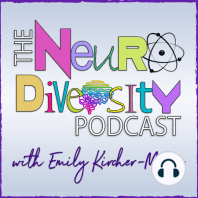33 min listen

Profile of a Twice-Exceptional Kid | Gifted | ASD | Asperger’s | 2e
Profile of a Twice-Exceptional Kid | Gifted | ASD | Asperger’s | 2e
ratings:
Length:
28 minutes
Released:
Jul 25, 2018
Format:
Podcast episode
Description
Some gifted people discover they have a second diagnosis which puts them into a different category - twice-exceptional, or 2e. On episode 14 of Mind Matters, Emily Kircher-Morris talks with Christen Leah, a college student who learned she was not only gifted, but was also diagnosed with Asperger’s, now part of a family of conditions known as ASD, Autism Spectrum Disorder. About the guest - Christen Leah is a twice-exceptional college student. At the age of eighteen she sought out an Asperger's diagnosis after identifying similarities between herself and other females on the spectrum through online videos. She is currently pursuing a degree in Psychology, but also maintains an interest in visual arts and music. Some of her hobbies include community theatre, playing the violin, and binge-watching animated shows and movies. She aims to be an advocate for girls with ASD to hopefully overcome the stigma and under-diagnosis presently facing girls and women with Autism Spectrum Disorder. Host Emily Kircher-Morris has dual Masters degrees in Counseling and Education, and specializes in the area of giftedness throughout the lifespan. She founded the non-profit organization The Gifted Support Network, is the owner of Unlimited Potential Counseling & Education Center, and is the mother of three gifted children.
Released:
Jul 25, 2018
Format:
Podcast episode
Titles in the series (100)
The Problem of Bullying | Bullying | ADHD | Gifted | Intelligence | 2E: In this episode of Mind Matters, Emily discusses the impact of bullying on the learning ability and environment of gifted and 2e young people. Her guest is Cathy Risberg, M.A., Curriculum and Instruction, who owns Minds that Soar, and consults with... by Neurodiversity Podcast